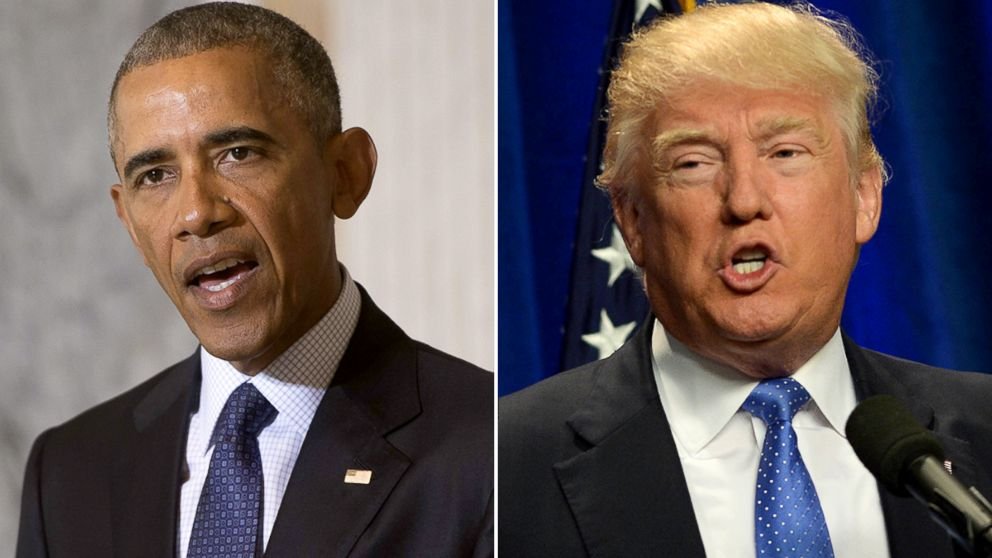Basil Odilim
“Is she Indian or is she black?”: Donald Trump’s attack on Kamala Harris; White House condemns remarks.
Before we delve deeper, let’s be honest: I am profoundly concerned. Many Christians worldwide appear so deeply entrenched in their beliefs that they cannot fathom the potential dangers if Trump were to regain the White House. To grasp the gravity of what he represents, I urge Christians and global intellectuals to read books such as The Rise of the Fourth Reich: The Secret Societies That Threaten to Take Over America by Jim Marrs, Seeds of Destruction: The Hidden Agenda of Genetic Manipulation by William F. Engdahl, The Bilderberg Group by Daniel Estulin, and The Trillion Dollar Conspiracy: How the New World Order, Man-Made Diseases, and Zombie Banks Are Destroying America by Jim Marrs. These works highlight the risks of a potential fascist dictatorship in the U.S., which could extend across Europe, making the Nazi era seem like child’s play.
The fervent support for Donald Trump among some Pentecostal Christians is alarming, particularly given that his public persona and actions seem at odds with the values he is purported to defend. This blind allegiance mirrors the early 20th-century German Jews who, despite Adolf Hitler’s clear fascist agenda aimed at exterminating Jews, initially believed he had their best interests at heart.
Trump’s agenda, which is rooted in ultra-white supremacy and supported by figures like Richard Spencer, poses a significant threat. This ideology includes extreme views on Africa, with Trumpists advocating for the continent’s recolonization and the potential restoration of apartheid in South Africa. They view Africa’s independence as a mistake and long for a return to oppressive systems.
The belief among some Nigerians that Trump, a man with a history of controversial and divisive behavior, is a Christian ally who will protect Christian doctrines in Nigeria is unfounded. Trump has shown little consistent commitment to Christian values beyond leveraging religious sentiments for political gain. His public statements and actions reveal a man more focused on his personal agenda than on any genuine protection or promotion of Christian beliefs.

Trump’s rhetoric, including his divisive comments about various figures, further illustrates this misalignment. He famously questioned Barack Obama’s U.S. citizenship, claiming, “I’ve always said that President Obama was born in Kenya,” despite evidence proving Obama’s birth in Honolulu, Hawaii.
More recently, on July 31, 2024, at the National Association of Black Journalists (NABJ) Convention in Chicago, questioning the racial identity of vice president Kamala Harris, Trump asked, “Is she Indian or is she black?” These statements demonstrate his tendency to use racially charged and inflammatory rhetoric rather than engage in constructive dialogue.
This scrutiny extends beyond political opponents to personal lives, with little criticism directed at Melania Trump, who acquired U.S. citizenship through marriage rather than birth. This reflects broader political norms, where the personal attributes of public figures’ spouses are often avoided in critique, focusing instead on their policies and actions.
As Hannah Arendt observed during the Hitler era, “A people that cannot distinguish between truth and lie cannot distinguish between right and wrong. And such a people, deprived of the power to think and judge, is, without knowing and willing it, completely subjected to the rule of lies.” This insight is relevant today, highlights the dangers of blind allegiance and manipulation of truth. It serves as a reminder of how a lack of critical thinking can lead to disastrous outcomes.
Understanding these dynamics is crucial. It is essential to critically examine leaders with questionable motives to avoid repeating historical mistakes and to safeguard progress. Supporting individuals whose actions and beliefs do not align with claimed values only undermines genuine progress and can lead to harmful consequences.